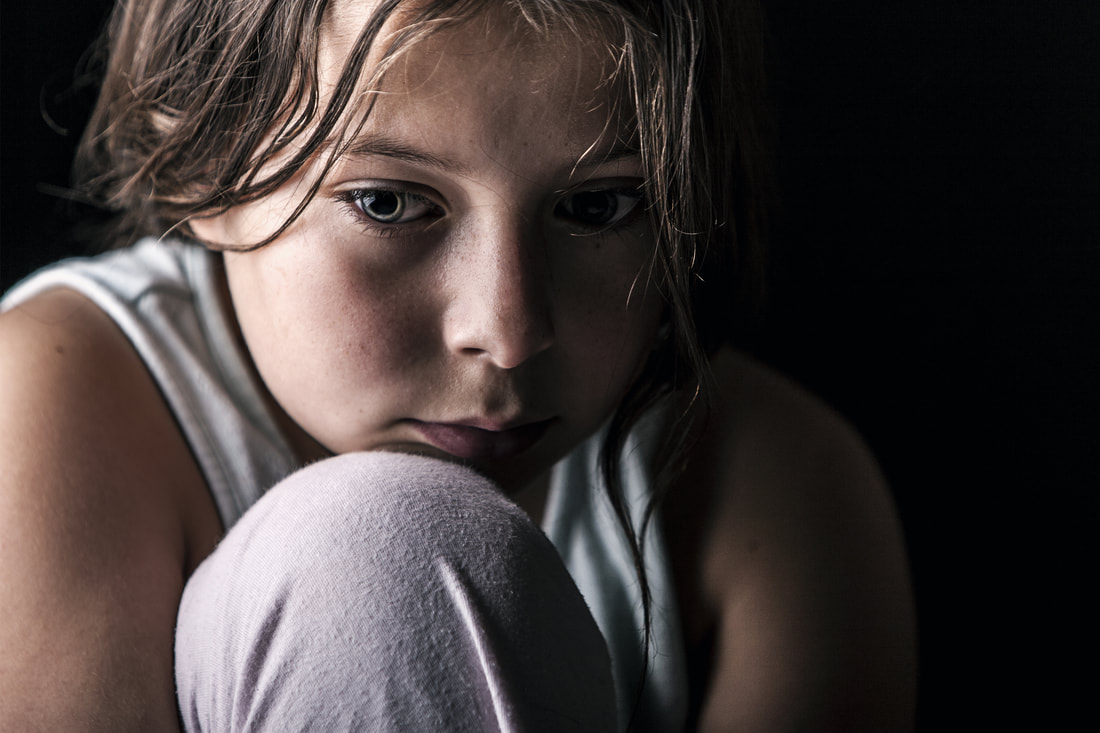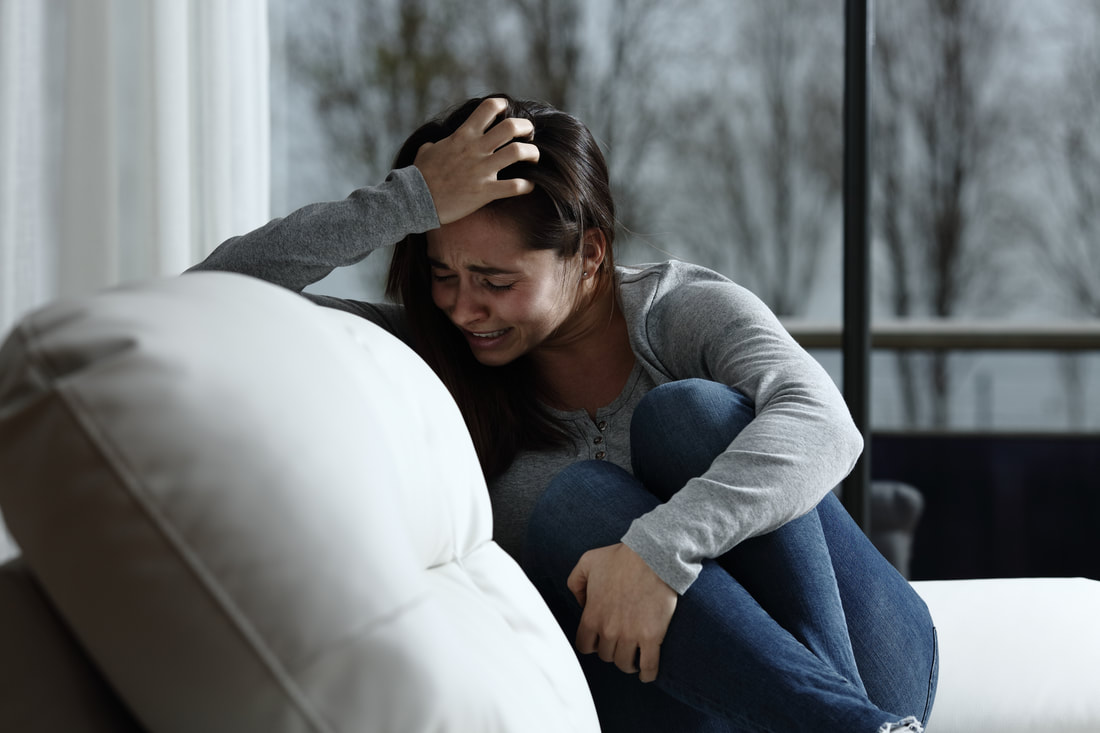|
The past doesn’t always stay where it should. If you experienced childhood trauma, the mental, emotional, and even physical issues you faced when you were little can still be present when you’re an adult. Childhood trauma can leak into your adult life and affect personal and business relationships, but most of all - your happiness! Sometimes it sneaks up on you and it can turn your life upside down. You ask yourself, “Why now?” “Why now?” probably seems like the sixty-million dollar question. You’ve done your best to move on. Even successfully blocked it out most of the time. But lately, you’ve started to feel anxious again. Sometimes on the verge of panic. Depressed feelings are beginning to take over. Maybe you even feel like withdrawing into a shell. After all of these years, how can your childhood trauma still be unresolved? What is unresolved trauma? When you’ve been traumatized as a child, it lives deep inside of you. You could even say it settles in your bones. The memories, even if pushed away and not conscious, are etched into your symptoms, in your relationship struggles, and into your negative self-esteem. Many traumatized children feel they’ve always been on their own and do the best they can to work things out for themselves. The problem is, there’s only so much you can do all by yourself. That’s why the deepest effects of childhood trauma often go “unresolved.” You might ask: “Even if I’ve had therapy?” Not all therapists are the same, so it is important to work with one that has the tools to help you heal from childhood trauma. There is no “one-fits-all” template for working out unresolved childhood trauma. Each person has their own experiences and these have affected you in your own particular way. The roots of your childhood trauma perpetuate symptoms that might go underground for a while, but not disappear entirely. Stress that causes an emotional upheaval, or an event that serves as too close a reminder of your earlier trauma, can put you back into the original experiences which quickly bring the symptoms back to the surface. Why “the past” isn’t always the past. Although your trauma is technically “in the past,” traumatizing experiences in childhood can’t be laid to rest until the ways they live on in your current experiences, symptoms, and relationships are deeply understood. Freud said we have a “compulsion to repeat,” even if we try not to. That’s why you might find yourself in relationships that remind you of those that traumatized you in the past. There are many different forms your symptoms or behaviors might take. Again, these are very individual to you. The important thing is: The past is never “just” the past. Until you’ve had help working out exactly how the roots of your past are alive in the present, your childhood trauma can remain “unresolved.” What causes trauma in childhood? Sometimes — as in physical or sexual abuse — trauma is quite obvious. But there are many kinds of childhood trauma that you might not identify as trauma at all. Neglect is also traumatic, and so is the loss of a parent, a serious childhood illness, a learning disability that left you doubting yourself, too many siblings, a detached, emotionally unavailable, or anxious parent, even your parent’s own childhood trauma. Maybe you experienced a combination of these. Childhood neglect means that your emotional or physical needs were not attended to. This may be because your parents were overwhelmed and preoccupied. Or because of the mental illness of one or both — making them expect you to be the “parent,” take care of the other kids, or do many more household chores than any child should. Whatever was the cause, your needs for nurturing and care went unseen, were pushed aside, or were greatly resented. A child should never be exploited because of a parent’s needs. A child’s emotional and physical needs should come first. If yours did not, you experienced neglect. Losing a parent to death or abandonment early in your life is a trauma. No matter how nurtured you were by other relatives or your remaining parent, this kind of loss runs deep. If your sadness wasn’t seen, heard, or allowed, then that loss lives on even more significantly inside you. You needed (or may still need) a chance to mourn. You learned much too early that a needed loved one can suddenly go away or be taken away. You typically then grow up afraid of loss. Even if you lost your parent in your early 20s, this is a vulnerable time. You may fear closeness because closeness and need signify possible loss. Most unresolved childhood trauma affects self-esteem and creates anxiety. Did you suffer a serious childhood illness? If so, you were likely isolated at home or hospitalized. This meant being removed from normal social activities and you probably felt lonely, maybe even worried about being different. Maybe now you feel less socially confident because of it and find yourself not sure where you fit in. Hospitalization also means separation from parents, often traumatizing medical procedures, and fear. This can leave you with anxiety that persists. If your attachments to your parents were secure and they were available and supportive, that helps. If not, you may now feel insecure in important relationships. If you struggled to learn, had dyslexia, or ADHD, or any other learning problem, you likely felt different or compared yourself unfavorably to the other kids. Learning problems are particularly difficult to live with if they went undiagnosed and you didn’t get sufficient help. Even very intelligent children end up thinking they aren’t smart at all. This has a negative impact on your self-image. You might have tried very hard to do better, struggling against challenges you couldn’t control. Or maybe you gave in and gave up. Either you are still too perfectionistic, trying always to please, but never feeling good enough, or you feel always behind and can’t get ahead. Effects of learning problems can live with you, even if you think they’re all worked out. Are you one in a family of many kids? Did it feel like there was never enough to go around? That’s often the case in families with a lot of children. Resources are limited, especially if you were all born close together. Especially if your mother was tired, beleaguered, and preoccupied with the siblings that seemed to always need more. Or, if you were the oldest — expected to care for the younger ones. As loving as you might be convinced your family was (or maybe you didn’t feel that way at all), being a child among many siblings can be traumatic. You might have felt lost among the many. Not seen or heard. Pushed aside, left out, and very much alone. This sibling situation can leave a child emotionally neglected and feeling unloved. You might even feel you have to push your needs aside or be the giver in order to be loved. And you may live with deep hunger for the love you feel you can and never will find. The effects of too many siblings are even more pronounced with a detached or unavailable mom. An unreachable parent is traumatic. Children need to be seen, heard, held, emotionally embraced, and valued. The effects of waiting, watching, and longing to have your feelings heard can last a lifetime. Maybe you’re wary of your needs and uncertain of being loved. And maybe you learned to stay distant yourself, not expecting much. Perhaps you had an anxious parent. One that was afraid, expected catastrophe, hid away from people, and perhaps didn’t trust anyone or anything. A parent’s anxiety can seep into a child’s pores and leave you traumatized, constantly worried, and living with the same kinds of anxieties your parent had, without even knowing it happened. An emotionally detached or anxious parent was probably traumatized too. There is definitely such a thing as transgenerational trauma. If your mom or dad had a traumatic childhood and that trauma was also unresolved, it is passed down from parent to child, from unconscious mind to unconscious mind. Children are vulnerable. You picked it up. You were affected too. Parents that were traumatized live out their trauma. They often can’t be fully there for you or become identified with the abuser who abused them. In instances where your mom or dad survived a horrific event, such as the Holocaust, the terror and unbearable losses can live like ghosts haunting both them and you. All these various sources of trauma live on if they are unresolved and all can affect you long into your adulthood — in their many ways and many forms. How does it affect you as an adult?
Childhood trauma can sometimes leak into your adult life because no matter how hard you’ve tried to go on, there is still a traumatized child living inside you. If you haven’t had sufficient help or the right kind of therapy to work out your trauma, this child part of you still carries your trauma and suffering. Maybe you don’t always feel it or know it’s there, but symptoms of your childhood trauma spill out when you’re stressed. Or when something in your life serves as a subtle or not-so-subtle reminder of what happened to you as a child. Your childhood trauma lives in your symptoms. Depression. Panic attacks. An eating disorder. Obsessional worries, catastrophic anxieties, and relationship fears. You might have difficulties trusting, low self-esteem, fears of being judged, constant attempts to please, outbursts of frustration, or social anxiety symptoms that won’t let up. Can childhood trauma be healed? Yes, unresolved childhood trauma can be healed. Here’s how:
You don’t have to live with the upsurge of symptoms that leak out under stress or unpleasant reminders. When you have this kind of therapy and can give yourself the time you need, you will heal from unresolved childhood trauma. If you are a resident of Georgia or Indiana, please contact me to learn more about my process and how together we can heal your childhood trauma.
1 Comment
|
AuthorDORICE NEIR Archives
March 2024
Categories |




 RSS Feed
RSS Feed